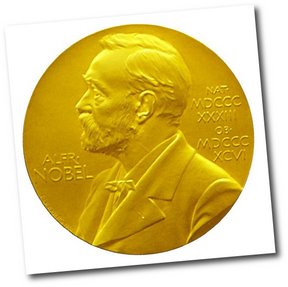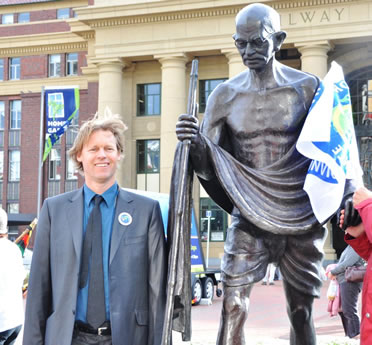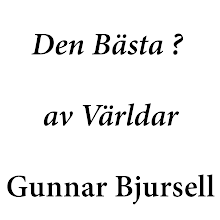
A week ago (10/12) monsieur Frédéric Merle - a journalist in the regional newspaper L'Echo du Berry - called me to ask if I would like to be interviewed concerning how I felt about being a Swede living in France and especially Région Centre and La Châtre.
The newspaper L'Echo du Berry do this kind of interviews with people coming from different parts of the world, moving to and establishing themselves in France and especially Le Berry/Région Centre.
These interviews are centred around some main subjects and in my case these were:
-Equality/L'égalité -Politeness/La politesse
-The social life/La vie sociale
-The countryside/La campagne
-The culture and the traditions
-The drinking/La boisson
-The bureaucracy/La bureaucratie
-The 'Swedish model'/Le modèle suédois d'aide social.
Concerning equality I said that I had found a certain ambiguity between the declarations of the French republique and the reality. In reality the hierarchies are more elaborated here than in Sweden.
I believe - without being able to relate to a more profound experience of the French society - that it's easier to get in contact with decision makers and politicians in Sweden than in France.
Of course I related to Sweden, partly because this is the only experience I can relate to partly because monsieur Merle wanted me to compare the two countries.
Politeness was an issue that came up spontaneously.
I talked about the differences in the way we great and adress each other in Sweden and in France.
In Sweden everyone says 'you' in a more intimate way ('tutoyer').
In English speaking countries one uses 'you' both when knowing someone well and when being more of strangers to each other but everyone knows when it's used and what it means in a certain context.
In France - as we know - as in many other countries, it's a difference between 'toi/tu' and 'vous', the latter more formal and used when adressing people you don't know to well or elderly people. The former used between friends and relatives.
However the 'vous' is often combined with a more polite behaviour, in my opinion.
My impression from the visits to and my stay in France is that people in general are more polite than Swedes and not least in comparison with the inhabitants of Stockholm, known to be rather unpolite.
In France it's always 'bonjour', 'bonsoir', 'merci', 'pardon', excusez-moi' etc. and even if one can claim that this is only a superficial behaviour, I personally feel that it's genuine, expressing respect for other people creating a more respectful atmosphere.
Of course this can be exaggerated when it comes to the previosly mentioned hierarchies but every behaviour has its negative sides.
Under the headline The social life I told the reporter that I found it easier to get in contact with people in France or at least on the countryside.
One are often invited spontanously to someone or someone rings the door bell wanting to say hello and offered something to drink or eat.
In Sweden this is much more complicated (maybe less in the countryside), often preceded by planning and fixed days and dates.
The country side was a headline under which I declared that I found it very surprising to discover that a small town like La Châtre, had a cinema, a theater, a museum, five super markets, a lot of different stores with all kinds of products.
In a town of the same size in Sweden (4500 inhabitants) you can't find more than a gaz station and a kiosk in which you can buy some hot dogs, at the most.
Otherwise you have to travel to the nearest major town and this could be ten, twenty or more kilometres away.
I also talked about the culture and traditions stating that the patrimony/cultural heritage is more important in France than in Sweden. My expericnce is that culture per se - in all its diversity - is much more important here than in Sweden.
In Sweden I feel that culture partly only funtion as distraction and amusement to some extent being used as a way of gaining positive results on the international market when it comes to export and import industries.
In France this might be the case too but the over all importance of cultural expressions in all its different forms tends to be more accentuated here than in Sweden - unfortunately from a Swedish point of view.
When it comes to drinking habits I told the reporter that Sweden was a part of the so called 'Vodka belt' or 'Aquavit-belt' incorporating the other Nordic countries, the Baltic countries, Russia, Polen and some other countries near us.
This implies that Swedes in general drink heavily during week-ends and mostly liquor.
In France the drinking is more focused on wine and less on heavier alcohol and one drink the wine when eating and mostly in moderate proportions. This is of course a truth with modification but a general overview would surely support this my opinion.
In Sweden there has however been some changes the last fifteen-twenty years, meaning that we drink more 'cultivated' but still the 'week-end booze' is the general drinking habit.
The bureaucracy is more elaborated in France - at least from my experience - and this is again probably related to the stronger hierarchial structures in society, combined with more decisional levels.
Lastly we talked about the 'Swedish model', up til this day a very significant trade mark of the Swedish society, so it seems.
I told monsieur Merle that the Swedish model has been under strong revision the last fifteen-twenty years and that the present government wants to make more changes in this system.
The Swedish government is using the so called 'working model' or 'back to work as fast as possible-model' meaning that they want to avoid people falling deeper into a social welfare system, passivating them.
This is something that links France and Sweden together.
The former social welfare system guaranteed people a certain amount of money and standard even if they were unemployed but sometimes this could continue for years, meaning that people lost their ability to strive for a job or a better life.
The social welfare system also implied that people having problems with drugs or/and other social problems where guaranteed a certain amount of money paying for their rent, light, telephone, travelling tickets (in order to visit the job centers and other authorities). It even guaranteed a newspaper.
These civic rights are under considerable change today though.
This interview came about thanks to one of the participants in the GRETA education (look at my blog) I participated in. She had informed the newspaper about this very rare specimen, called a Swede!
I think I'm one out of two Swedes in La Châtre and there are not more than 15-30 000 Swedes in the whole of France (the figures differs), to my knowledge.
This being compared with the 100 000 Swedes living in the London area!
(Picture logotype L'Echo du Berry copied from: http://www.ch-stamand.fr/Actualites/echo%20berry.jpg)




























